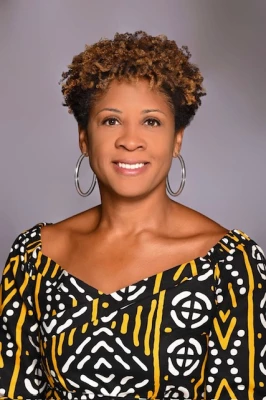Miami Dolphins owner Stephen Ross has begun exacting his political revenge against state lawmakers who stood in the way of his proposed renovation to Sun Life Stadium.
A new super PAC created by Ross mailed attack fliers late last week to voters in the districts of state Reps. Michael Bileca, Jose Felix Diaz and Carlos Trujillo, all Miami Republicans who opposed $350 million in stadium upgrades that would have been partly funded with public dollars.
The fliers signal that Ross, a wealthy GOP donor who had already lambasted the Republican speaker of the Florida House of Representatives for failing to take up the football club’s legislation, has given up on making a push for the bill in next year’s legislative session, when the same lawmakers will still be in office.
Instead, Ross is taking aim at next fall’s elections, perhaps intent on trying for the stadium renovations again with new lawmakers beginning in 2015.
“It’s reckless,” Trujillo said of Ross’ early campaign. “It’s a little bit embarrassing, I think, for them, with their stature in the community, to be attacking individual members.”
Ross, a billionaire real-estate developer who works in New York City but lives in Palm Beach County, could not be reached for comment.
A senior official with his new political action committee, Florida Jobs First, confirmed to the Miami Herald that the group targeted the three lawmakers and plans to support Republican Gov. Rick Scott’s reelection bid, as first reported by Politico. Scott all but endorsed the Dolphins’ stadium proposal earlier this year.
Ross first indicated that he would dive into Florida legislative politics on the night the session ended in Tallahassee without a House vote on the Dolphins’ bill, which was required to allow Miami-Dade voters to weigh in on whether public money should be spent on the stadium makeover.
An incensed Ross blasted House Speaker Will Weatherford, a Wesley Chapel Republican, accusing him of reneging on a pledge to give the legislation a floor vote. Weatherford denied ever making the promise and cited a Miami-Dade legislative delegation split on the bill as a principal obstacle to its passage.
“In the future, I will look to play an important role in fixing the dysfunction in Tallahassee and will continue to work to create good jobs in Miami-Dade and throughout South Florida,” Ross said in the May 3 statement.
Florida Jobs First filed paperwork with the IRS on June 14, registering as a political organization. As a super PAC, the group can raise unlimited political funds.
The lawmakers who opposed the Dolphins are likely to have deep-pocketed backers of their own. Miami auto magnate Norman Braman, himself a billionaire and frequent GOP donor, lobbied against public financing for the stadium improvements and praised the legislators who worked to defeat the proposal.
The Dolphins spent an astounding $10 million in publicly reported funds over six weeks on the special election. Their local political action committee, Friends of Miami First, raised $4.97 million from the Dolphins and Ross and spent $4.97 million. The club also made a nearly $4.8 million nonrefundable payment to Miami-Dade County to cover election costs.
In all, the effort amounted to one of the most expensive Miami-Dade campaigns ever waged.
The special election would have asked voters to approve an agreement crafted by Miami-Dade Mayor Carlos Gimenez, in which the county would have raised the mainland hotel-tax rate to 7 percent from 6 percent to fund some of the stadium improvements. Miami-Dade would have paid the Dolphins $289 million over three decades from that increase.
As part of the state legislation, the Dolphins were also seeking $90 million over 30 years from a Florida sales-tax subsidy.
In exchange for the funding, the club would have had to eventually repay some of the money to the state and county, to hold a certain number of sporting events at the stadium and to remain in South Florida for the next 30 years.
The Dolphins fought for a referendum before National Football League owners met last month to award the 50th and 51st Super Bowls. South Florida was bidding to host either championship but, without plans to make over the 1987 stadium, lost to the San Francisco area and Houston.
The first round of spending by Ross’ new super PAC targeted Bileca and Trujillo, perhaps the loudest local voices opposing the stadium plan, and Diaz, the vice chairman of the Miami-Dade delegation. The fliers against the three men are identical, except for the legislators’ names and photographs.
“More than 4,000 New Miami jobs … gone,” reads the front of the glossy four-sided flier. “Republican Representative Jose Felix Diaz failed us.”
Diaz said he was surprised by the attack because he tried to keep a low profile on the legislation. His law firm, Akerman Senterfitt, has worked for the Dolphins, and he wanted to avoid creating a potential conflict of interest, he said.
“I never took a vote against it, and I tried to stay out of it,” Diaz said, acknowledging that he “wasn’t excited” about the bill. “Mine just seems to be guilty by association.”
The inside pages of the flier accuse the lawmakers of blocking “big tourist events like the Super Bowl” from returning to the Miami Gardens stadium — and of halting the proposed May 14 referendum that was canceled after the Dolphins legislation failed to get a House vote.
Based on the partial tally of votes that had been cast early in person and by mail in the referendum before it was called off, the Dolphins’ campaign was foundering.
————————–
Copyright 2013 – The Miami Herald
Thanks for reading CPA Practice Advisor!
Subscribe Already registered? Log In
Need more information? Read the FAQs
Tags: Accounting, State and Local Taxes



